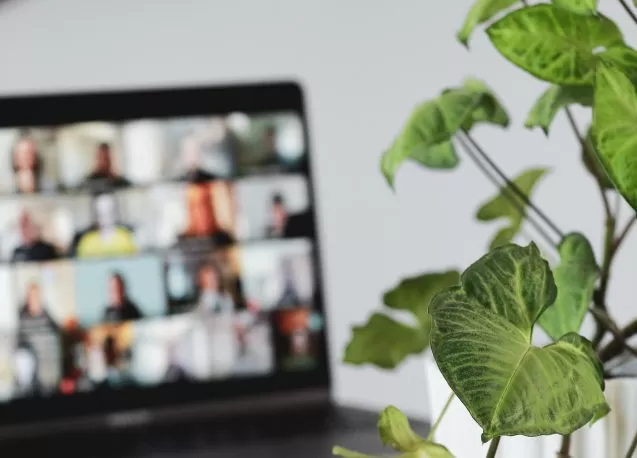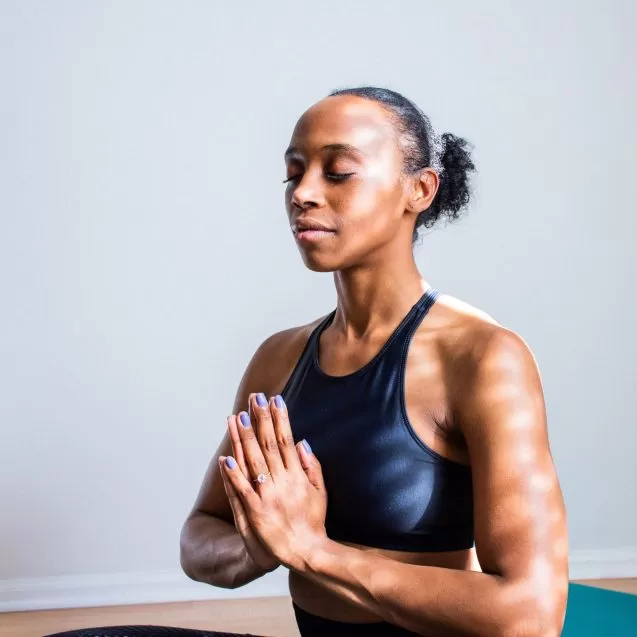The pandemic has changed our lives, bringing new challenges and new ways to solve them. It’s 2022, and many of the changes that happened to our everyday existence in 2020 are still here with us.
The one thing that changed significantly is our workplace. The work-life balance has been destroyed and brought back to life multiple times. The office became the home office became the part-time office became the Schrödinger’s place that exists and doesn’t exist at the same time.
The other thing that happened was the skyrocketed level of stress. Everything from working with your children in the background to the constant flow of devastating news that we’re experiencing today led to the growing need for psychologists, psychiatrists, psychological education, and the understanding of different forms of self-care and wellness as a whole. Unfortunately, we don’t have enough psychologists to follow every stressed out and unwell individual at their every step. And that’s when, as usual, the software comes to the rescue.
In the hectic world that we live in, tools and apps help individuals manage their sleep cycle, exercise regularly, ease stress, as well as manage their financial wellness and stay on top of things. At the same time, B2B software helps clinics and hospitals have mental health well-being services among the medical services they provide.
In this article, we’ll go through tools that help with all kinds of wellness challenges. Most of them have become popular lately ― and rightly so. If there is a way to help your mind and body using just the Internet connection, it should be used by as many people as possible, and hospital facilities should do everything they can to help people get well, in terms of their mental conditions as well as their physical one.
So without further ado, let’s get started.
Mental health software for healthcare facilities
Mental health has been a focus for individuals as well as for employers since the pandemic breakout. Many employers are investing in online resources and digital health solutions to ensure more people have access to behavioral healthcare. Here are some of the healthcare software products:
AdvancedMD allows mental health professionals to work remotely, see patients and stay connected with a comprehensive cloud suite of office and remote care technologies. It also offers patients a portal where they can keep up with appointments, learn about self-help techniques and provide feedback about the services they receive. E-prescribing service is also available.
AdvancedMD cloud creates smooth clinical workflow automation within your organization. The clinics track and share other patient charts among each, manage patient information, as well as manage online feedback.
BestNotes is a mental health software that allows its users to store and customize electronic health records and follow up on treatment plans for patients.
BestNotes also has a patient portal, which helps patients share their private health information and be sure that it’s safe and secure, as well as schedule appointments. The hospital can manage patients, include notes and billing coders, track cancellations, and note instances of no-shows.
CareLogic is a web-based electronic health record software system made specifically for mental health organizations. The software is ONC-ATCB-certified, and it can be used for therapy, counseling, psychology, psychiatry, and substance abuse providers. The platform allows to tailor it to fit the existing clinical workflow. The clinical tools include patient scheduling, customizable reports, e-prescribing, quality measuring, and many more.
Our highly configurable EHR software empowers providers with a robust suite of clinical, administrative, and financial capabilities including scheduling, intake, treatment planning, service documentation, ePrescribing, consumer engagement, billing, and reporting.
Wellness tools and apps for individuals
There are plenty of wellness apps made specifically for individual self-help. Some of them target mental health and emotional well-being, and some focus on exercise and dieting. Some apps help you fall asleep, while others urge you to stop smoking. Often, they are affordable or have a free option. The following tools can act as a key to your wellness, depending on what it is you need to be improved and/or managed in a year as challenging as 2022.
Headspace urges you to be kind to your mind. Primarily, Headspace is a mindfulness app. The latest study of 2018 concludes that mindfulness training apps offer many benefits, including improved affect, mood, and emotional reactivity. The app includes guided meditations that focus on different topics, like dealing with grief, sparking creativity, boosting confidence, and finding focus. But it also has tools for sleep, meditation, managing stress, and practicing mindfulness. Its recent addition is move ― a collection of low to medium impact workouts that are 10 to 30 minutes long. The exercises focus on the mind-body connection and wellness for your body as well as your mind.
Headspace has a free trial, is affordable, simple, and easy to use. The app teaches many techniques, used in mindfulness practices, meditation, cognitive-behavioral therapy, and other evidence-based schools.
Often, weight loss or even just switching to healthy eating and exercise is a large part of achieving wellness. But like most wellness goals, it’s easier said than done. Noom is an app that helps individuals transform their eating habits in a way that’s simple, lasting, and evidence-based. The app uses behavioral psychology to nudge people to eat healthier. It also uses nutritionists, personal trainers, and behavioral psychologists to create programs, schedule, and exercises.
The app boasts 1:1 health coaching, health quizzes, and motivation articles. Besides, you can track your exercise, weight, blood sugar, and blood pressure while using the app.
Exhale ― a wellbeing app made specifically for women of color was first released in 2020. The app includes guided meditations, breath-work exercises, and affirmations made with black, indigenous women of color in mind. As the app is fresh from the oven, a lot is still planned for its development. However, there are already plenty of topics of focus covered and the app reviews are pretty great.
Exhale is free to download and use, and there are no ads. It’s a freemium model, which means that some content is only available through an optional paid subscription.
The platform helps users to create healthy lifestyle habits, work out more, eat healthier, and take care of their mental health. It offers hundreds of workout programs for any level, including programs made specifically for pre- and post-natal fitness. Some workouts are also streamed live. The diet section includes a calorie calculator and food tracker, recipe cookalongs, and weekly expert diet coach Q&As. The mindset section offers a self-care toolkit, a collection of relaxing meditations, mindset and wellbeing courses, and a collection of sleep audios for better sleep quality.
The platform boasts a kind of all-in-one wellness approach, where each part of your mind and body is getting their attention. RWL can be accessed from smartphones, tablets, computers, or streaming devices, and the memberships start from £14.99 a month.
Final words
Achieving wellness might not be easy. It requires a comprehensive approach to your health: everything from regular workouts to mental health therapy. Often, existing healthcare fails to accomplish that due to focusing on physical health and neglecting mental health. Fortunately, the understanding of the importance of mental health and overall wellness is growing among clinicians and laypeople. This caused the growth of wellness software for both hospitals and individuals. In this article, we talked about some of them.











